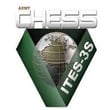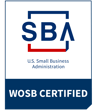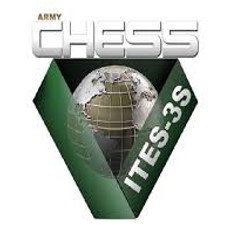Data Modeling - Unlock Clarity, Specificity
and Agility
Business Rules Visualized, Clarified, Optimized
Inteq Consulting Services
![]() A well-structured data model is essential to bridging the gap between business operations and applications software solutions. It captures the core business vocabulary—terms, concepts, and rules - into a visual framework - typically via an entity relationship diagram (ERD). These models reveal how relational data interconnects across business functions, enabling clear analysis of systems, processes, and reporting requirements.
A well-structured data model is essential to bridging the gap between business operations and applications software solutions. It captures the core business vocabulary—terms, concepts, and rules - into a visual framework - typically via an entity relationship diagram (ERD). These models reveal how relational data interconnects across business functions, enabling clear analysis of systems, processes, and reporting requirements.
Without formal database modeling, many organizations rely on informal, ambiguous knowledge embedded in workflows - knowledge that's rarely documented or critically analyzed. This results in fragmented systems and rigid architectures that struggle to support change.
At Inteq, our expert data modelers and business analysts uncover and formalize your business’s data-oriented rules using proven patterns refined over decades. The result? Agile, scalable systems built on the clarity and precision of relational data design. And we do it fast - developing high-impact data models in weeks, not months.
Unlock the value hidden in your data. Elevate your business with effective data modeling.
Consulting Approach and Deliverables
Working with your team, we provide our deep analysis experience and expertise, including best practice tools, techniques, and methods, to facilitate high-intensity, short-duration, sprints that utilize these patterns to rapidly discover, critically analyze and precisely specify, data-oriented business rules via entity-relationship (ER) diagrams.
Deliverables include
> A comprehensive logical data model (Entity Relationship Diagram) that clearly depicts data-oriented business rules.
> Entity state transition diagrams as applicable.
> A cross reference, as applicable, of the logical data model to business system transactional requirements
Who From Your Team Should Participate
Developing a logical data model and analyzing data oriented business rules typically includes a balanced mix of:
> Subject Matter Experts (SMEs)
> Business Analysts and Systems Analysts
> Business Data Analysts
> Developers Associated with the in-scope business systems
> Supervisors, Managers and other Stakeholders with knowledge of the business space.
Training Course: Logical Data Modeling
Training Course: Advanced Data Modeling
Inteq is privately held and is not under pressure from Wall Street or Sand Hill Road to make the "quarterly numbers."
Inteq has earned the reputation as a firm that delivers practical solutions on-time, on-scope and on-budget.
Business value is a driving force at Inteq. Our consulting approaches, methods and frameworks are engine.
We clearly understand that we are guests working in your business space with your people.
Our professionals are seasoned, hands-on practitioners with substantial business and industry expertise.
Every client relationship is important to us. We assist many clients with large and complex projects.




















